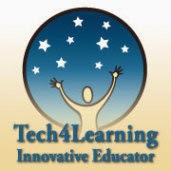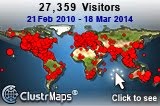It's hard fun.
It's a meaningful life's work.
It's frustrating and uplifting, discouraging and encouraging all at the same time. It is quality that can't be quantified (but that everyone feels a great need to quantify).
What matters most can not be tested with #2 pencils and fill-in-the-bubbles.
That's why educators use #hashtags like #eduawesome and #eduwin to share those positive moments that are worth sharing.
 My 4th and 5th grade language arts classes have really enjoyed read-alouds this year. The last book I read to my 4th graders was Chris Grabenstein's new book, Escape from Mr. Lemoncello's Library.
My 4th and 5th grade language arts classes have really enjoyed read-alouds this year. The last book I read to my 4th graders was Chris Grabenstein's new book, Escape from Mr. Lemoncello's Library.We enjoyed this book a LOT (many of my students said it was their favorite or one of their favorite books ever). With all of the puzzles and games, it was an especially fun book to read together as a class.
A few days after we finished the book, one of my students, Allie, came to me to tell me that she was checking out Chris Grabenstein's website and,
"LOOK what I found! Chris Grabenstein Skypes with classes for free!"
She asked if she could email his assistant to set up a Skype for our class.
Let me repeat that.
My excited 4th grade student asked me IF SHE COULD EMAIL CHRIS GRABENSTEIN'S ASSISTANT TO SET UP A SKYPE VISIT FOR OUR CLASS.
And that is what she did. She wrote a beautiful email. I love how her voice, personality and enthusiasm shine through her words.
As a language arts teacher, I also happen to notice how much Allie's writing has improved over the year. But what delights me most is her choice to include information like, "Our class loves to read books and write."
If you are wondering what is meant by students "owning their own learning," this is it.
PS- I don't quite know how to thank amazing authors such as Chris Grabenstein who care about helping to create the next generation of readers and give generously of their time. We have already scheduled our Skype visit for early in the fall, and my students can not wait!




.jpg)




